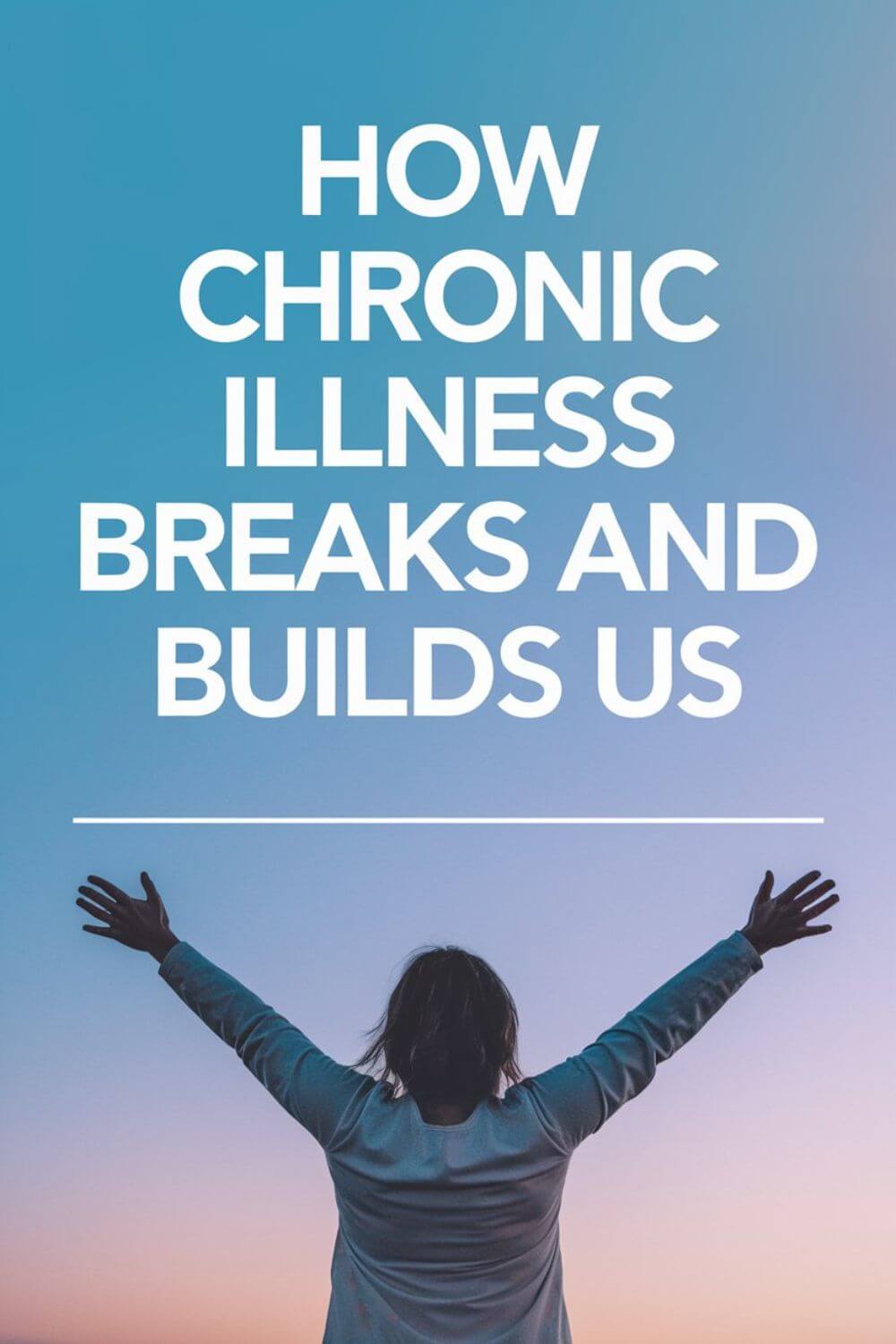How Chronic Illness Breaks and Builds Us? (A Husband’s Story)
Living with endometriosis and fibromyalgia transforms every aspect of life. For my wife, who was once a vibrant dancer, choreographer, and performer, these chronic conditions became a cruel thief, robbing her of a passion she once called her own. It took away not just her physical vitality but her emotional spark. And as her husband of 13 years, I’ve lived every heartbreaking moment with her.
To the woman reading this: I know this isn’t just her story. It may echo yours. I understand the tears, the weight, and the struggle because I’ve seen and lived them with the person I love more than anything.
This post is for you, and, more importantly, for the men who love you, who walk this painful, silent path by your side, often unsure how to navigate their own emotions while trying to be your rock.
“Endo-Tool: Endometriosis for Men”
If you or someone you love is navigating the complex realities of endometriosis, I invite you to explore “Endo-Tool: Endometriosis for Men”, a book written from my heart, with the invaluable help of my wife, for men like me who want to better support their partners. This resource offers practical guidance, emotional insight, and the hard-earned lessons I’ve learned while standing by my wife’s side.
You can grab a FREE chapter of the book when you subscribe, along with deeper, more personal emails that provide immense value tailored just for you. You’ll also receive a BIG discount on the full book and exclusive offers through my emails. Together, let’s build a community of support, understanding, and resilience.
The first chapter alone contains all the comprehensive medical knowledge about endometriosis, including:
- What is endometriosis?
- What are the symptoms?
- What causes endometriosis?
- What does endometriosis look like?
- What are the stages?
- What are the types?
- What is adenomyosis and how is it related to endometriosis?
- Why do some women develop severe endo and others don’t?
- Does endometriosis cause infertility?
- How is endometriosis diagnosed?
- Do types and stages affect the treatment?
- Recurrence of endometriosis after excision surgery.
FREE Chapter of “Endo-Tool”
Endometriosis e-Book for Men
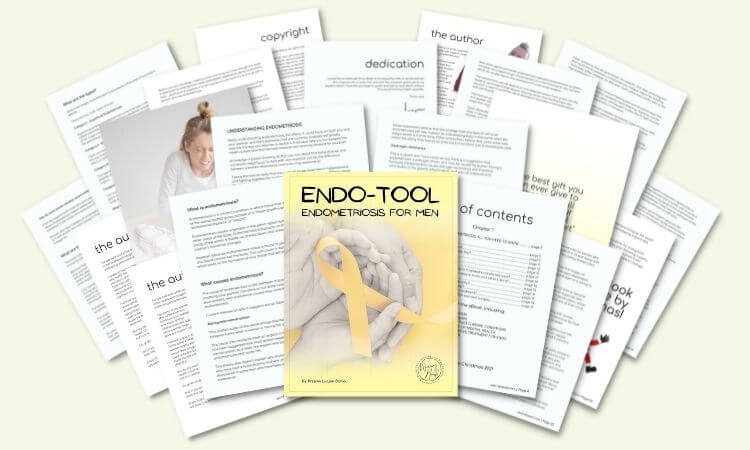
The Invisible Cost of Chronic Illness on Mental Health
When chronic illness enters a relationship, it doesn’t just alter the body—it transforms every layer of life, most cruelly touching the mind. I watched this happen to my wife, the woman who once thrived as a dancer, choreographer, and performer.
With endometriosis came physical agony that no words can fully capture. It ripped through her body, attacking her sense of self and leaving scars visible only to those who dared to look closely. Then, just when we thought we had adjusted to its cruel rhythms, fibromyalgia struck, amplifying the pain, fatigue, and emotional toll. The effects have been far-reaching, but what is often overlooked is the immense mental cost of these conditions.
The Descent Into Isolation
At the beginning of our journey, my wife and I clung to hope, believing that if we tried hard enough, we could maintain the life we once knew. However, as her conditions progressed, reality set in. Chronic illness is relentless; it demands attention, steals energy, and alters even the simplest of plans.
Gradually, I watched as my wife became increasingly isolated. The social butterfly who once loved gatherings, laughed freely, and filled every room with light began to withdraw. Her absence at events, the reluctance to make plans, and the perpetual exhaustion weren’t mere choices—they were forced upon her by pain.
But the mental toll was far greater than the physical symptoms…
Chronic illness isolates not just by circumstance, but by emotion. Feeling “othered” by what you can no longer do, feeling misunderstood by those who can’t comprehend your pain, creates a profound loneliness that words rarely convey. I witnessed the woman I love retreat further into herself, her confidence chipped away, day by day.
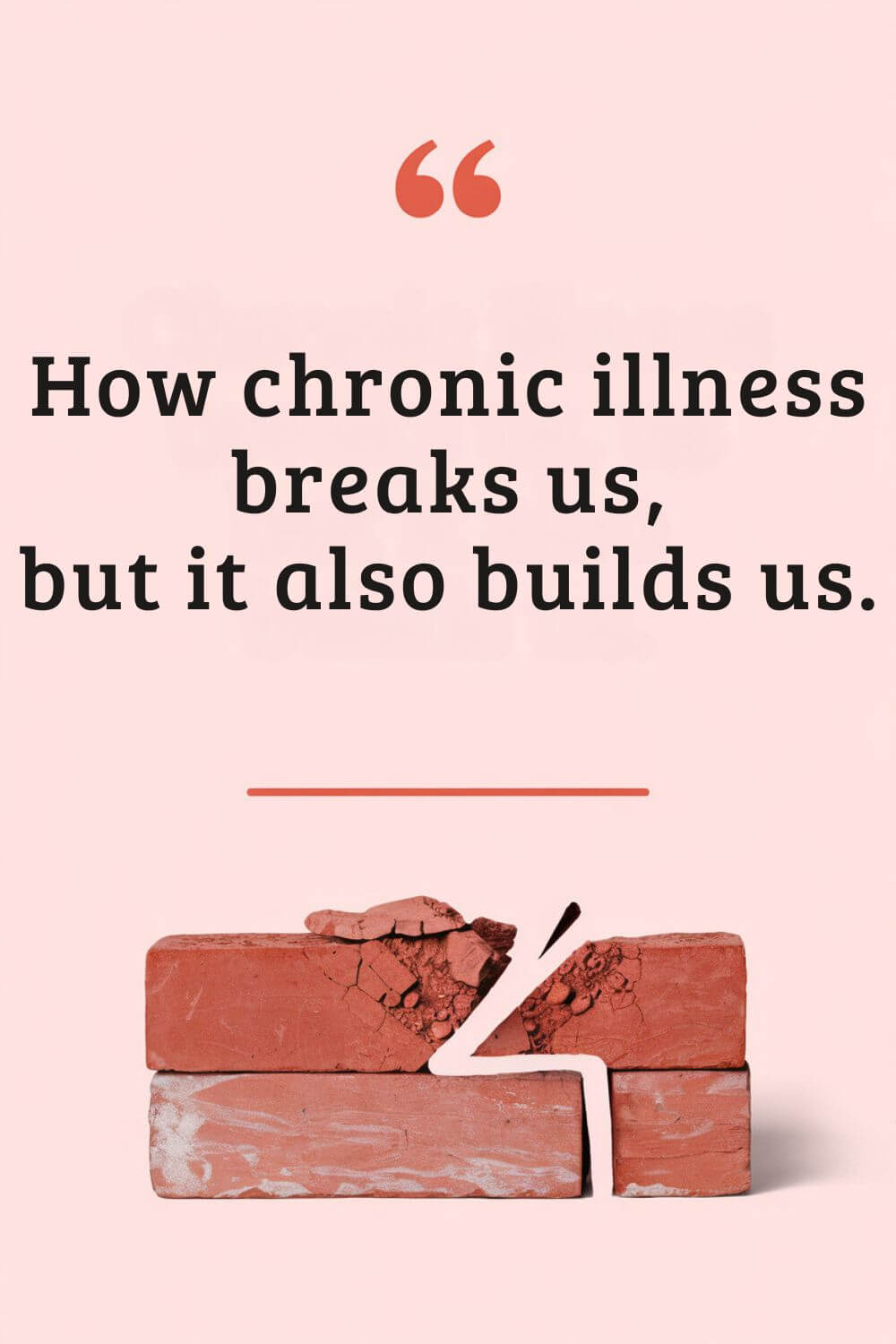
Depression and Anxiety as Constant Companions
Chronic pain isn’t just physical; it bleeds into every aspect of life. Depression and anxiety often followed my wife like shadows. Depression whispered lies into her ears—that she was a burden, that she would never experience joy again, that I deserved someone better, someone “whole.” Anxiety, meanwhile, made her hyper-aware of every moment of pain, every possible trigger, and every potential judgment she might receive from others. Together, these mental health battles amplified the toll of chronic illness, making even simple tasks seem insurmountable.
Some days, she would cry uncontrollably, grief pouring out for the life she once had and the dreams she feared she’d never achieve. Other days, she could barely summon the strength to get out of bed.
There were times she expressed a deep desire to disappear altogether, believing that her absence would “free” me from the weight of her pain. These moments were the hardest. They forced me to confront my own helplessness and fears—because what words can reassure someone who genuinely believes they’re a burden?
Advanced OCD and the Need for Control
When so much of your life feels dictated by pain and limitations, control becomes a desperate need. For my wife, this manifested as obsessive-compulsive behaviors that consumed her time and energy. Cleaning rituals, repetitive actions, and an endless cycle of perfectionism became her way of finding order amid chaos. On the surface, it seemed like an overreaction to trivial matters. But for her, it was survival—a fragile attempt to reclaim control of a body and life she no longer recognized.
I would watch her, heartbroken, as she scrubbed and reorganized beyond exhaustion, caught in a loop she couldn’t escape. When I tried to intervene, I quickly learned that logic was no match for the terror of losing even the smallest semblance of control. Chronic illness had stripped her of so much; these rituals became both a refuge and a prison.
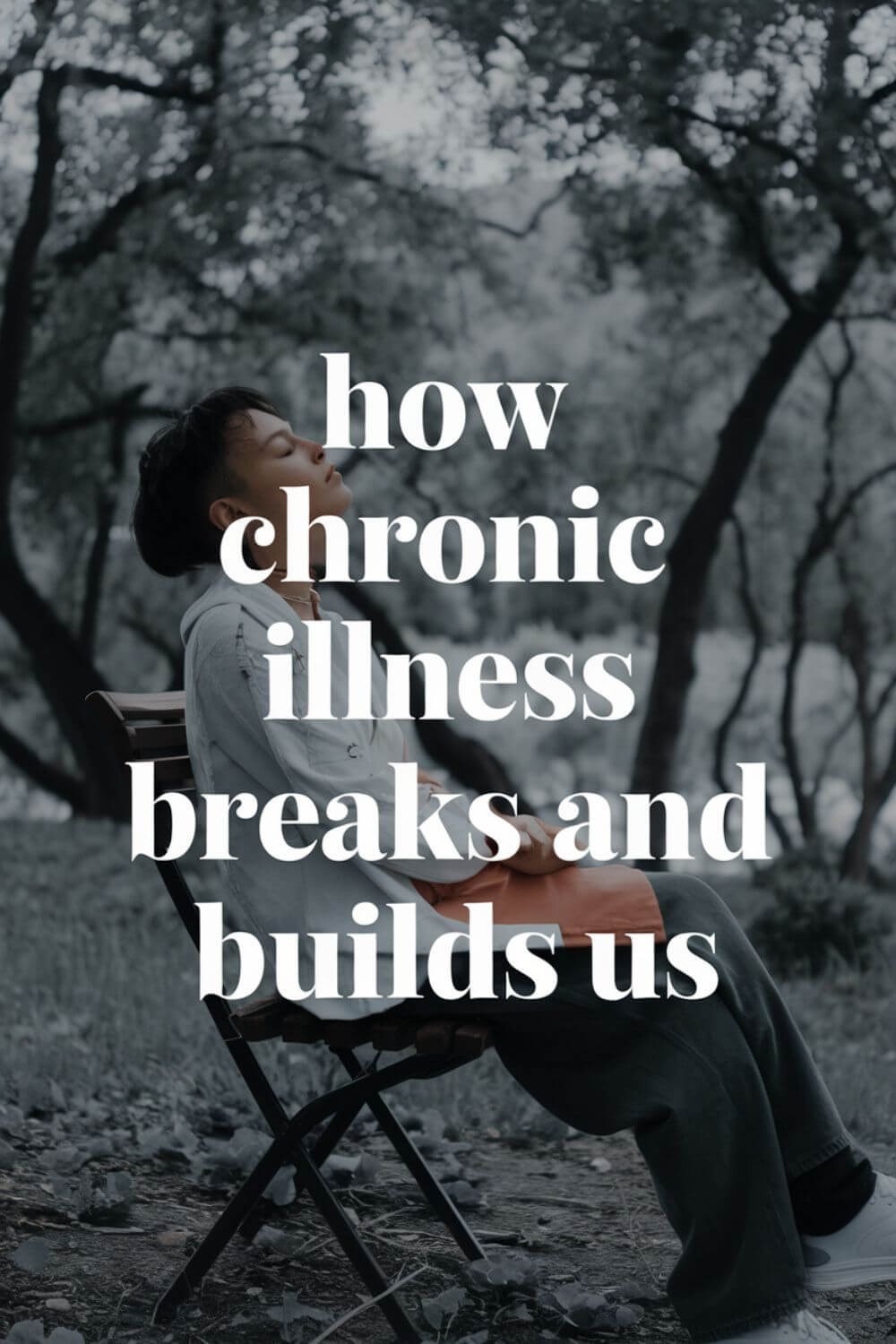
Grief for Lost Dreams
Perhaps one of the hardest parts of this journey has been witnessing my wife grieve dreams she can no longer chase. She lost her dance school, the art form that brought her joy and purpose. Her career was more than a job—it was a calling. Losing it was like losing a piece of herself.
Chronic illness doesn’t just impact the present; it steals the future you once envisioned. As her partner, I grieved too—not only for her but for us. We mourned the children we couldn’t have, the adventures we planned but would never take, and the life we once assumed was guaranteed.
The Strain on Relationships
Chronic illness tests relationships in ways I never imagined. The dynamic shifts when one partner becomes a caregiver. Love becomes tangled with duty, compassion competes with exhaustion, and intimacy fades under the weight of survival. We’ve had countless conversations about the strain of it all—about how we both felt trapped, how the illness dictated our choices, and how it made us feel powerless.
The love between us remained, but it was tested, stretched thin by pain and fatigue.
The lack of a sex life and the inability to experience closeness without the burden of illness were hard truths to swallow. On several occasions, she asked me to leave her, believing that I deserved someone healthier, someone who could fulfill the dreams we once shared. Every time, I chose to stay. But that choice didn’t make it easier. We had to rebuild intimacy on different terms, and redefine what love and partnership meant in this new reality. It’s a process—painful, raw, and ongoing.
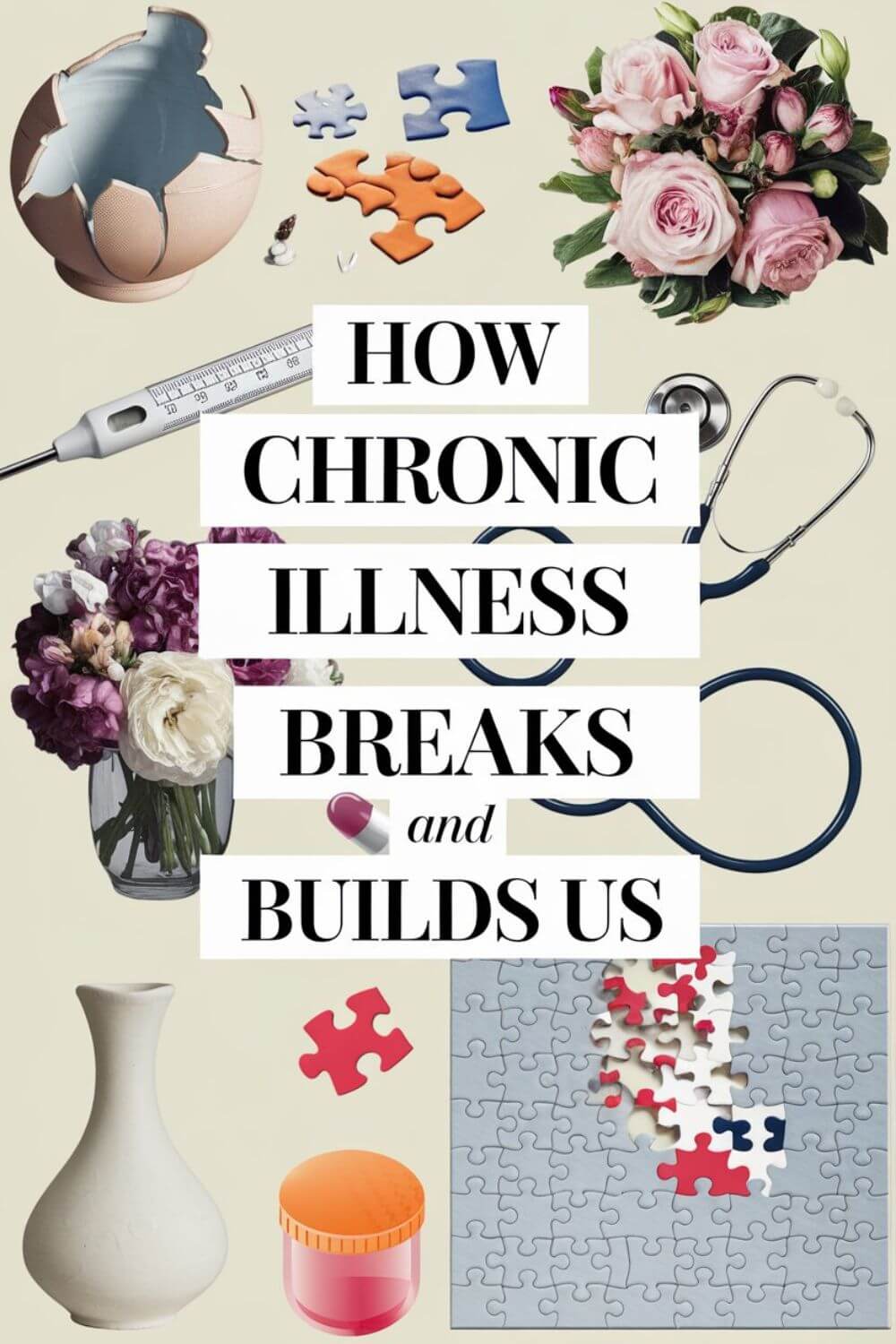
The Power of Hope and Support
Despite all of this, the moments of hope shine even brighter. When my presence is enough to bring her comfort, when my patience helps her navigate a hard day, and when my support reminds her that she’s not alone—it gives both of us strength. Mental health struggles don’t vanish overnight, but love and understanding can create safe spaces to process, grieve, and heal.
To every man supporting a partner with chronic illness, know this: your presence matters, your compassion makes a difference, and your willingness to endure the hard days is a gift beyond measure.
And to the women battling chronic illness: you are not alone. Your pain is real, and so is your strength. The journey is hard, but it’s not without hope. Together, we can acknowledge the unseen battles, embrace the love that sustains us, and fight to reclaim moments of light in even the darkest places.
Through the lens of our struggles, I’ve come to believe that vulnerability and shared understanding can break down walls of isolation. I share my experience to honor the strength of every woman facing these battles and to empower men to stand alongside them, with open hearts and hands ready to hold. You deserve nothing less.
What It Means to Be a Supportive Partner?
Being a supportive partner to someone with chronic illness is a journey filled with challenges, heartbreak, and growth. When my wife was diagnosed with endometriosis and fibromyalgia, I quickly realized that love alone would not be enough to sustain us. Support became more than a word—it became a daily practice, a mindset, and, often, an exhausting endeavor.
To those who are in the trenches with me, loving someone with chronic pain and illness: you are not alone. Here’s what I’ve learned about being a supportive partner.
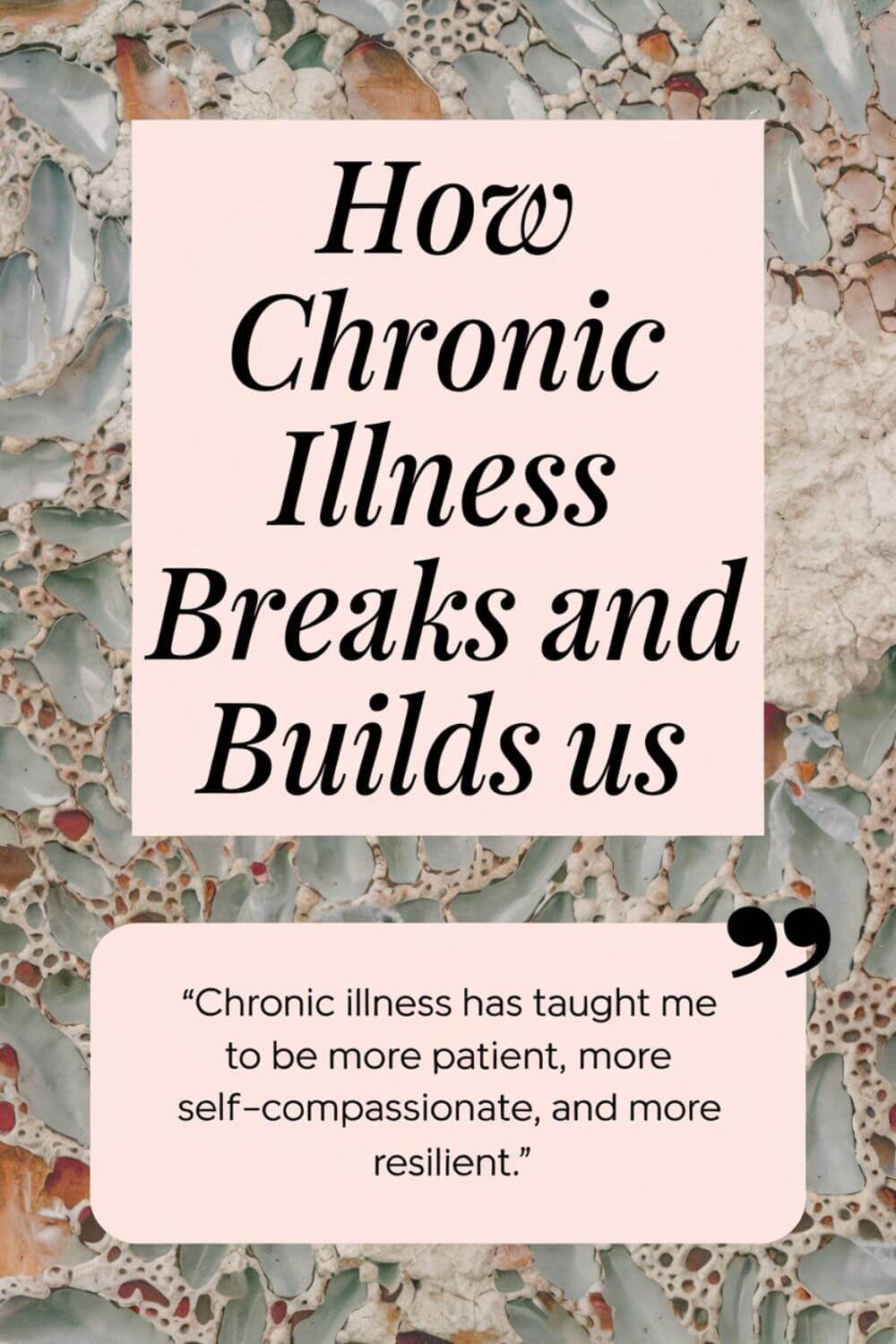
Empathy Over Fixing
One of the hardest things to accept was that I couldn’t “fix” what my wife was going through. I tried everything—researching treatments, offering advice, and encouraging different paths—but nothing took away her pain. As men, we’re often conditioned to solve problems, but chronic illness isn’t something you can simply solve. It’s an ever-present battle that requires empathy more than anything.
Empathy means sitting in the darkness with your partner, not trying to shine a spotlight that only highlights what they’ve lost. It means listening without judgment, letting them vent without rushing to provide solutions, and being present even when there’s nothing tangible you can do. When my wife was at her lowest, all she needed was to know I was there—steady, unwavering, and willing to weather the storm beside her.
Recognizing the Weight of Mental Strain
Chronic illness doesn’t only affect the body—it wreaks havoc on the mind. The mental toll is often invisible, but no less devastating. My wife battles depression, anxiety, and obsessive-compulsive tendencies as a way to cope with her loss of control. Supporting her meant recognizing that these mental health struggles were just as real as her physical pain.
I had to learn to validate her feelings, even when they seemed irrational or overwhelming. Chronic illness changes the way you view yourself and the world around you. For my wife, it created a relentless cycle of fear, hopelessness, and self-blame. Being a supportive partner required me to be patient, compassionate, and willing to listen to the same fears over and over again. It wasn’t easy, but it was necessary.
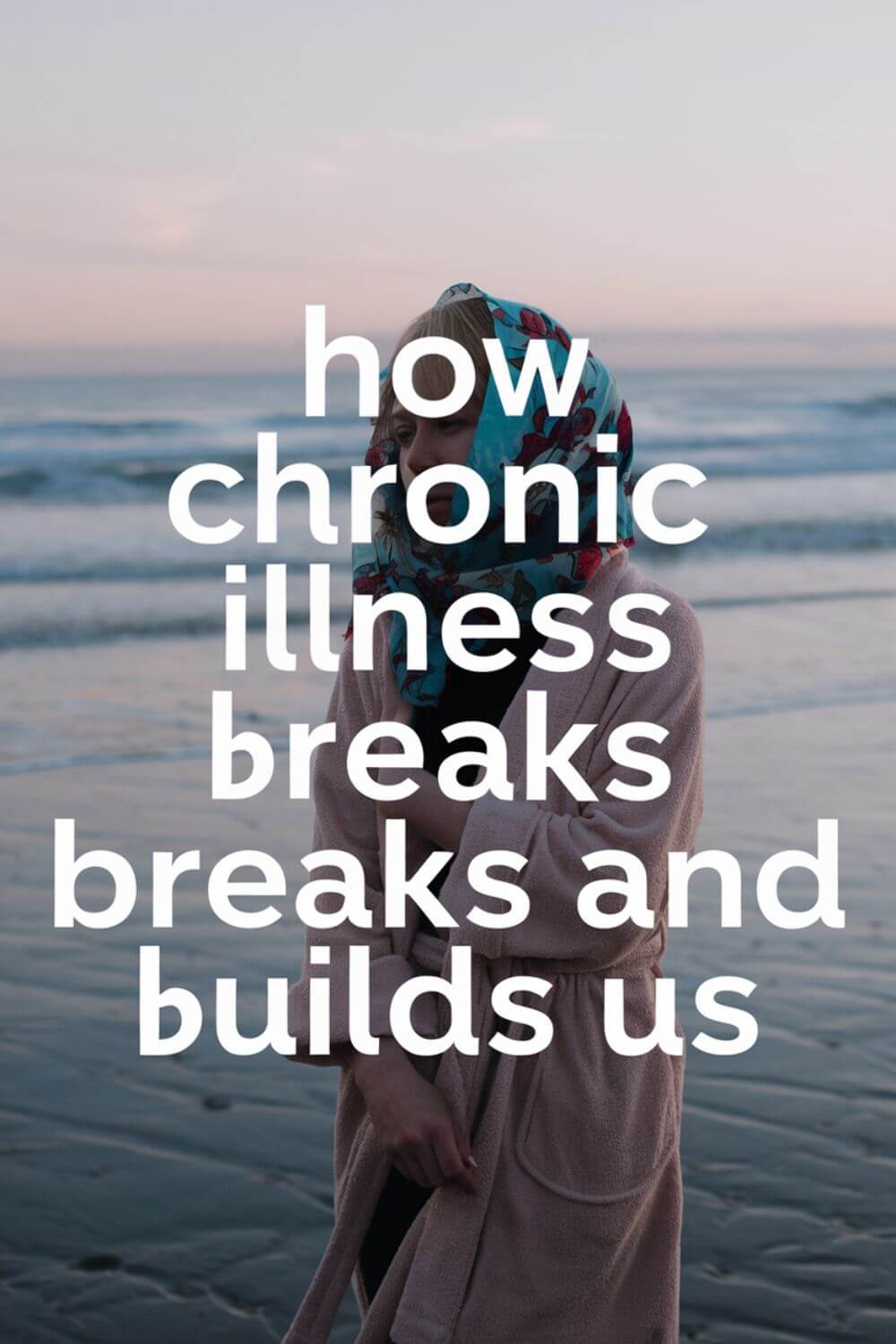
Self-Care Isn’t Selfish
I’ll be honest—there were times I burned out. I poured every ounce of energy into supporting my wife and forgot to take care of myself. I felt guilty for wanting a break, for needing moments of peace in a life that often felt chaotic and heavy. But I learned that self-care isn’t selfish—it’s essential.
Supporting someone with a chronic illness means you have to take care of yourself, too. I found solace in therapy, in talking to trusted friends, and in finding moments to recharge. Whether it was a walk, a creative project, or simply taking time to breathe, these moments of self-care allowed me to show up for my wife as the partner she needed.
We cannot pour from an empty cup, and our partners need us to be strong, resilient, and grounded—not depleted and resentful.
Open Communication and Patience
Chronic illness tests communication in profound ways. My wife and I had to learn to talk honestly about difficult topics—about her pain, our intimacy, our future, and our fears. It wasn’t easy. There were moments of frustration, miscommunication, and tears. But open communication was the only way to navigate the uncharted territory we found ourselves in.
Patience became our mantra. Chronic illness doesn’t follow a predictable script; some days are better than others, and setbacks can be devastating. Being a supportive partner meant learning to be patient with my wife, with me, and with the unpredictable nature of her conditions. It meant letting go of expectations and being present in each moment, no matter how hard it was.
Resilience in the Small Victories
In the face of chronic illness, big wins are rare. Life changes in ways you never imagined, and dreams may have to be reimagined or let go. But there is resilience in celebrating the small victories. A day without tears, a moment of laughter, a new coping strategy that works—these are moments of light in an otherwise dark journey.
Being a supportive partner means recognizing and celebrating these moments with your loved one. It means being their cheerleader, even when hope feels distant. It means finding joy in what remains, rather than focusing solely on what’s been lost. These small victories remind us that life, though altered, still holds beauty and connection.
Being a supportive partner isn’t about perfection—it’s about showing up, day after day, even when it’s hard. It’s about holding space for pain, for joy, and for everything in between. To every man supporting a partner with chronic illness: you are stronger than you think, and your love makes a difference.
And to every woman navigating this journey: you are not alone, and you are deeply loved, even in the moments you feel least deserving. Together, we can navigate the unthinkable and find moments of grace amid the struggle.
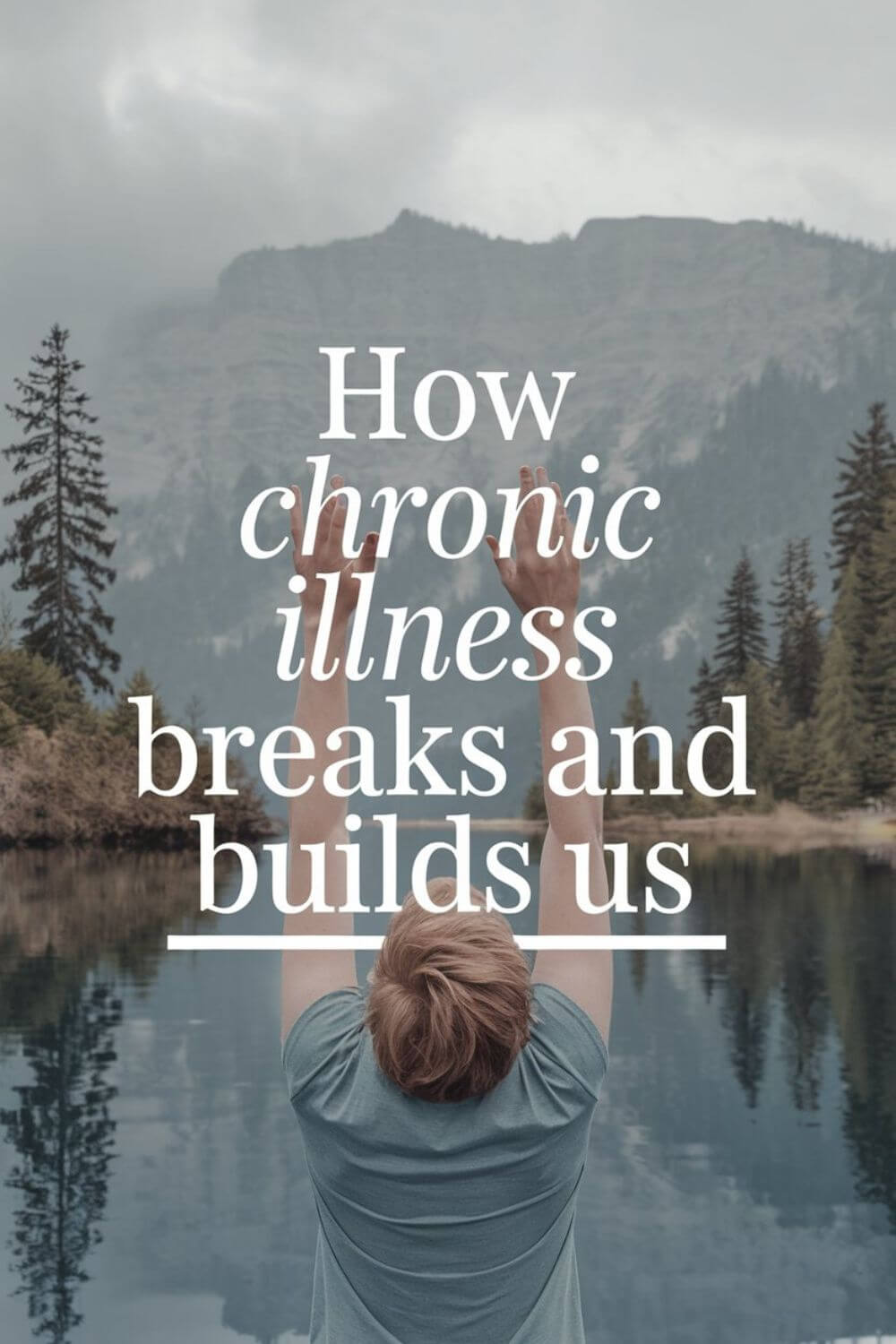
How Helping Men Helps Women?
When a woman battles a chronic illness such as endometriosis or fibromyalgia, the impact extends far beyond her body and mind—it affects every relationship, every interaction, and every moment of life. While the focus rightly centers on her needs, her pain, and her journey, there is another layer that often goes unnoticed: the struggles of her partner.
When we, as men, find ourselves in the role of caregivers and supporters, we enter a world that can be isolating, confusing, and emotionally draining. Yet, by helping men understand and cope with this role, we can ultimately help the women we love in profound and meaningful ways.
This is not just about easing a partner’s burden; it is about creating a stronger foundation of support, empathy, and connection that benefits both people in the relationship. Helping men become better equipped, emotionally aware, and resilient enables them to be better partners to women facing chronic illness.
The Silent Burden Men Carry
Men often find themselves in a unique and challenging position when their partner suffers from chronic illness. Society expects men to be strong, stoic, and unflappable in the face of adversity. This expectation can lead to isolation, as many men feel that sharing their fears, struggles, or vulnerabilities may be seen as a sign of weakness. We become silent carriers of our own pain, trying to be “strong” while our partners need us most.
But silence doesn’t help anyone—it only deepens the divide!
By helping men acknowledge and express their struggles, we create space for healthier communication and deeper connections with our partners.
When I first began supporting my wife through endometriosis and fibromyalgia, I thought I had to be the unshakable pillar she leaned on. I buried my fears, my exhaustion, and my grief. But over time, I realized that I couldn’t be her best support if I wasn’t honest about my own needs and struggles. Opening up wasn’t easy, but it allowed us to navigate the challenges together, with mutual empathy and understanding.
When Men Understand, Women Feel Seen
Chronic illness often leaves women feeling misunderstood, isolated, and “othered.” When men take the time to educate themselves about their partner’s condition—whether through reading, attending support groups, or simply listening attentively—it sends a powerful message: “I see you, I hear you, and I am here.” This validation is priceless. It acknowledges that her pain is real, her struggles are valid, and she is not alone.
My wife often told me how much it meant when I educated myself about endometriosis and fibromyalgia. It wasn’t enough for me to say, “I’m here for you.” She needed to see that I understood, that I cared enough to learn the medical details, the symptoms, the triggers, and the emotional impact.
When men take this initiative, it relieves the burden of constantly having to explain themselves, which can be exhausting. Instead, it becomes a shared journey of understanding and empathy.
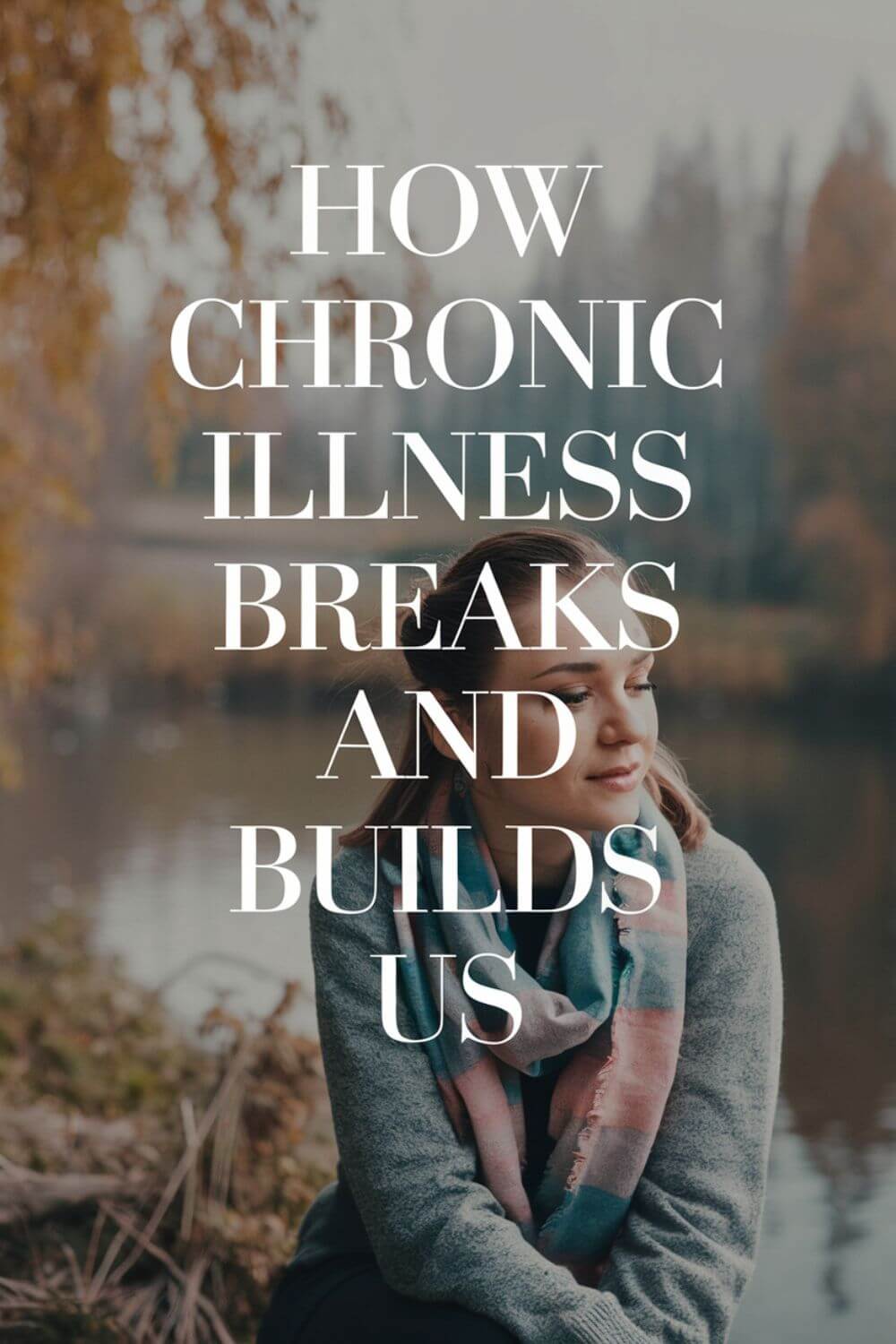
Reducing the Sense of Burden
One of the heaviest emotional weights for many women with chronic illness is the belief that they are a burden to their partner. They see the sacrifices, the missed opportunities, the exhaustion, and the altered lives, and it can be overwhelming.
My wife has expressed this feeling more times than I can count—she’s asked me to leave her, believing that I would be better off without the weight of her illness. But every time, I reminded her that she is not a burden; she is my partner, and we are in this together.
When men are supported and educated, when they have access to resources, coping mechanisms, and communities that understand their unique struggles, they become more resilient and less likely to reach a breaking point. This resilience helps alleviate the emotional toll on both partners.
When I was at my lowest—burned out, emotionally spent, and overwhelmed—it was nearly impossible for my wife to believe she wasn’t a burden. But when I was able to recharge, to process my emotions, and connect with others who understood, I came back stronger and more ready to reassure her of her worth.
Communication and Emotional Intimacy
Helping men navigate the emotional complexities of supporting a chronically ill partner fosters healthier communication and deeper emotional intimacy. Too often, chronic illness disrupts the natural rhythms of a relationship, creating distance and misunderstandings.
Men who feel equipped to talk openly about their fears, frustrations, and hopes can bridge that gap. They become active participants in their partner’s journey, rather than silent bystanders.
For me, this meant learning how to listen without trying to fix everything, how to express my own needs without guilt, and how to be vulnerable even when it felt uncomfortable. It required hard conversations, moments of raw honesty, and a willingness to hear the things we both found painful. But every difficult conversation brought us closer. It reminded us that we were a team—that we were fighting the illness together, not each other.
The Ripple Effect of Empowerment
When men feel empowered, educated, and supported, their capacity to support their partner grows. This creates a ripple effect: the woman facing chronic illness feels more supported, seen, and valued, which in turn strengthens her ability to cope with the challenges she faces. It becomes a cycle of mutual empowerment, where both partners lift each other up rather than dragging each other down.
By helping men, we help women. It’s as simple—and as profound—as that. When men have the tools, resources, and emotional resilience to support their partners, it strengthens the entire relationship. It reduces the emotional and physical toll on women, provides stability in the face of chaos, and offers hope in moments of despair.
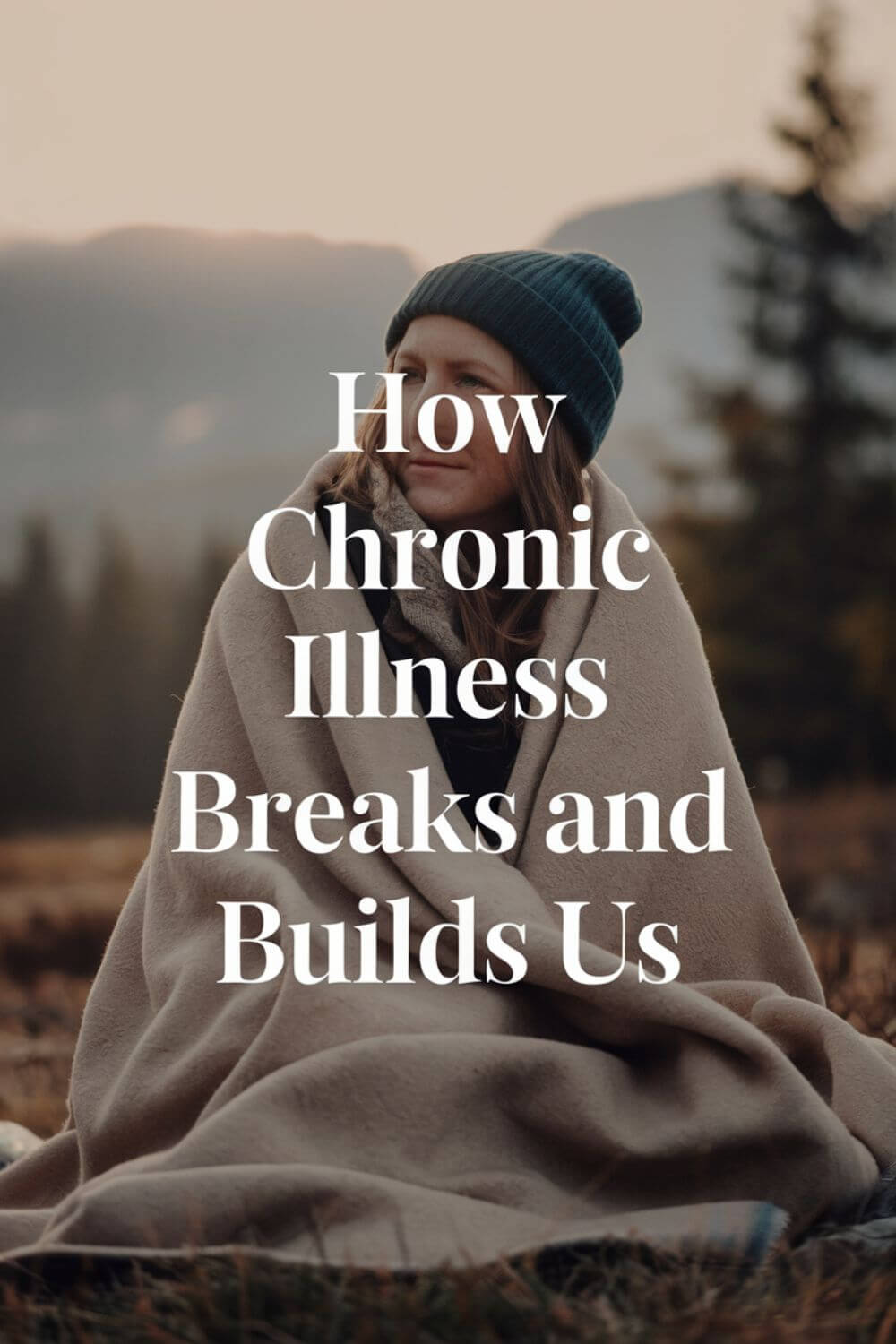
Creating a Culture of Support
Supporting men who love women with chronic illnesses goes beyond individual relationships—it helps create a culture of understanding and compassion. When men speak out, seek help, and share their stories, it encourages others to do the same. It normalizes the experience, breaks down stigma, and fosters a community of people who understand the unique challenges of loving someone with a chronic condition.
This culture of support doesn’t just help men; it helps the women they love. It creates a network of empathy, education, and empowerment that benefits everyone involved. By lifting up men, we lift up their partners. By strengthening one, we strengthen both.
When men are given the tools to support their partners with chronic illness, the entire relationship transforms. Women feel less alone, less burdened, and more understood. Men feel more capable, more resilient, and more connected. And together, they create a partnership that can withstand even the harshest of challenges.
This is the power of helping men to help women—it strengthens bonds, deepens love, and reminds us all that we are never alone in this fight!
Conclusion on How Chronic Illness Breaks and Builds Us
Living with chronic illness is a journey that no one would choose, but it is a journey that reshapes everything it touches. It tests our strength, our patience, and our love in ways we could never have imagined. For my wife and me, it has broken us down to our most vulnerable selves and forced us to rebuild with what remains. But from this pain, we’ve found resilience, understanding, and a bond forged in struggle. The challenges don’t disappear; they evolve. But so do we—stronger, more compassionate, and more aware of what truly matters.
To everyone reading, whether you’re living with chronic illness, loving someone who is, or simply seeking to understand: your struggles, your strength, and your journey matter. You are not alone in this fight. Let’s continue building bridges of empathy, connection, and support.
I invite you to share your thoughts, experiences, or stories in the comment section below. Your voice matters, and it helps create a community where everyone feels seen and heard.
And don’t forget to grab your FREE chapter of “Endo-Tool: Endometriosis for Men”—a resource my wife and I created to help men better support their partners. Sign up to receive not only the free chapter but also deeply personal, value-packed emails, exclusive discounts, and offers.
Let’s navigate this journey together, one step at a time!


About Me
Hi, I’m Lucjan! The reason why I decided to create this blog was my beautiful wife, who experienced a lot of pain in life, but also the lack of information about endometriosis and fibromyalgia for men…
